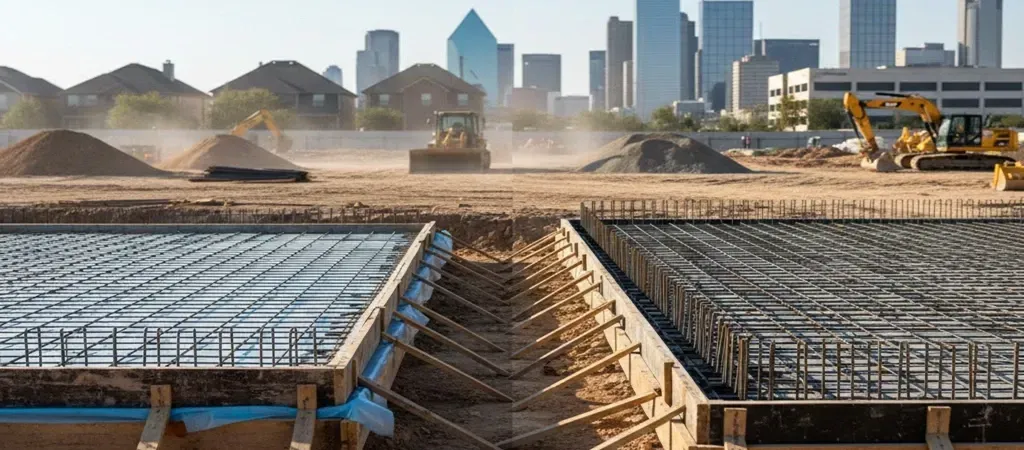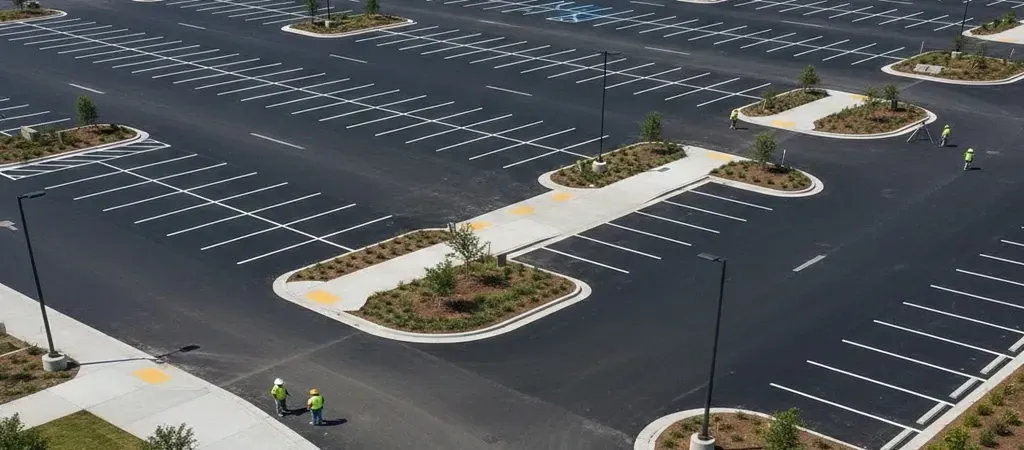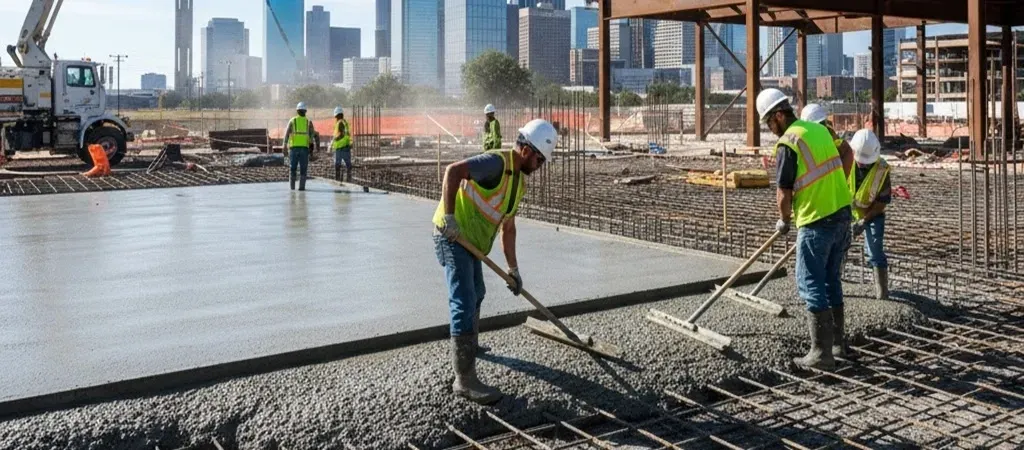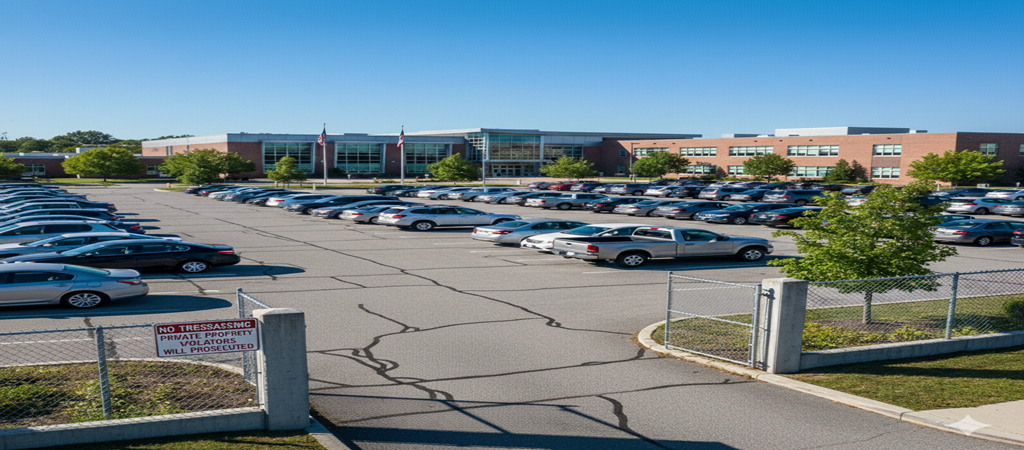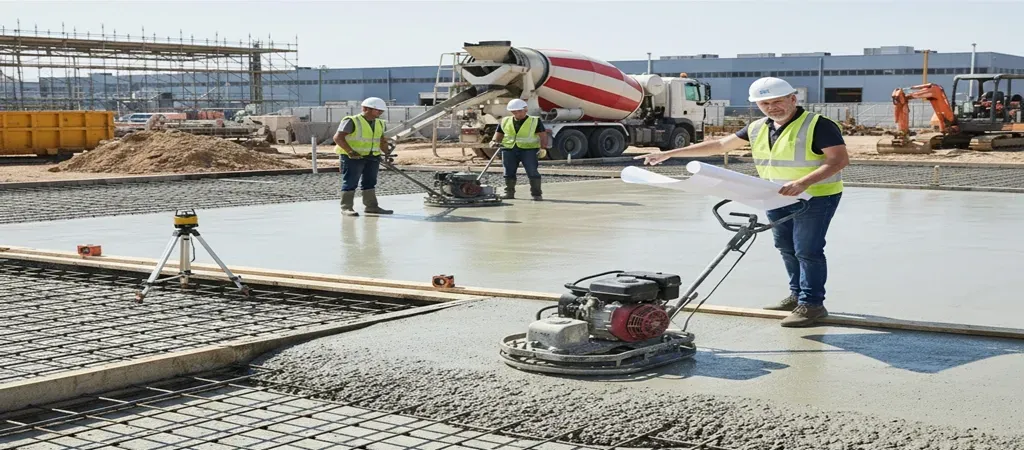Overcoming Common Challenges in Dallas Concrete Driveway Installation
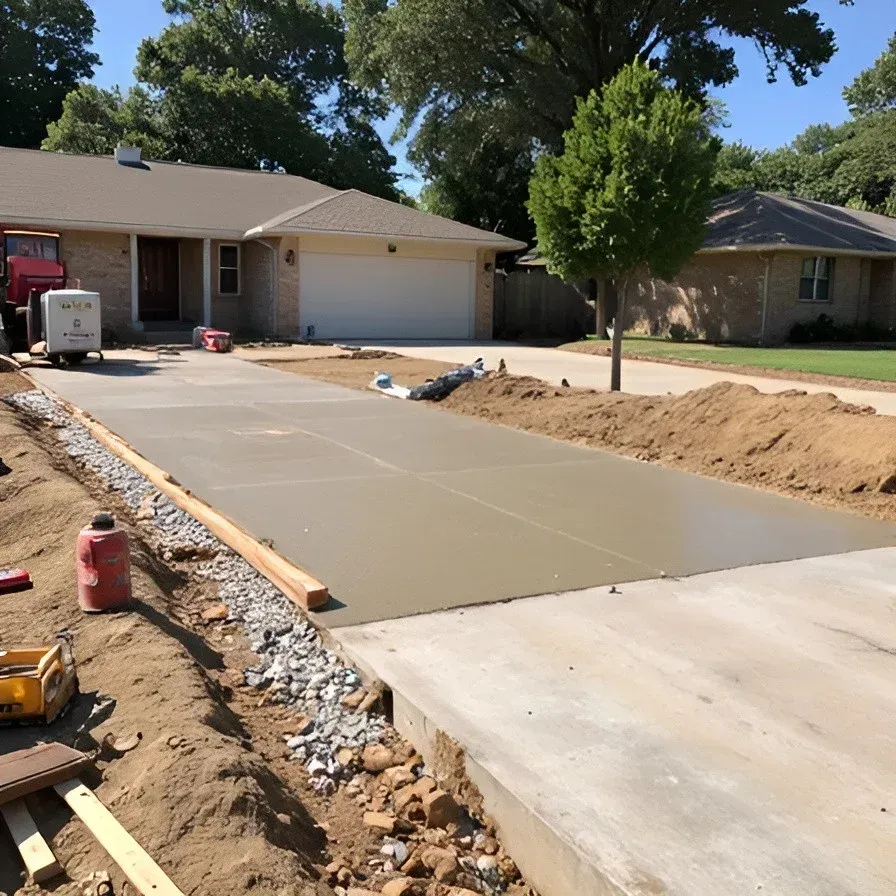
Installing a concrete driveway in Dallas isn’t as easy as just pouring and waiting for it to dry. The scorching heat and tricky clay soil make every project unique. At Dallas Concrete Contractors, we’ve seen it all. We know what works and what doesn’t. Here’s some expert tips that Dallas Contractors use to handle the common issues that pop up to make sure your driveway stays strong and durable for years.
Battling the Texas Heat
The relentless Dallas sun can be a real enemy during a concrete installation. In high temperatures, concrete can dry too quickly, leading to premature cracks. I remember one August job where the homeowner was nervous about the heat ruining their new driveway. Their worries were spot on—if concrete dries too fast, it doesn't cure the way it should.
To prevent that, we cover the fresh concrete with plastic or use a misting system to keep it damp. This helps it cure slowly and evenly, stopping those first small cracks from turning into bigger problems later on. It’s a simple step, but it can mean the difference between a driveway that holds up for years and one that falls apart too soon.
Navigating Expansive Clay Soil
Dallas has tricky clay soil that expands when wet and shrinks when it’s dry, which can really mess with concrete driveways. Over time, this can lead to cracks and shifting. We’ve seen plenty of driveways falling apart because the ground underneath wasn’t prepped the right way. It’s a common problem, but one we know how to handle.
One job in East Dallas really sticks out. The last contractor didn’t stabilize the soil before pouring the concrete. And it resulted in major cracks. We believe in doing things right from the start. That’s why we carefully check the ground before we begin any project.
If needed, we’ll add gravel or compact the soil to make it solid. This extra step is crucial because a strong foundation is what truly matters. It helps your driveway handle the natural shifts of the ground over time, so you won’t have to worry about cracks down the line.
Managing Water with Proper Drainage
Water can really damage driveways, especially with those sudden storms we often see in Dallas. When water doesn’t drain properly, it can seep into the soil under your driveway. This can make the ground soft and lead to cracks or shifts in the concrete.
To fix it, we use French drains and adjust the slope of the driveway so that water drains away. We always pay attention to how the driveway is sloped during design. This helps water run off instead of gathering in one spot. It’s a small detail, but it’s super important for keeping your driveway looking great for years!
Reinforcing for Heavy Traffic
Concrete driveways aren’t just for regular cars. We’ve worked with clients who park RVs, and heavy trucks on theirs all the time. Heavy weight can cause cracks or uneven surfaces if your driveway isn’t reinforced the right way. It’s important to make sure your driveway can handle what you use it for so it stays strong and safe for years.
We had one client who worried about their driveway supporting the weight of their boat trailer. To put their mind at ease, we reinforced the driveway with steel rebar. This helps distribute the weight evenly and makes the concrete stronger.
A year later, that same client called us back—not because of any problems, but to start a new project. They were excited to tell us how well the driveway held up under heavy use. It really showed us how important it is to do the job right the first time.
Preventing and Managing Cracks
Cracks are inevitable in any concrete driveway, but they don’t have to be a problem if managed correctly. Some small surface cracks are just cosmetic. But deeper cracks can form if the installation isn’t done right. We’ve seen driveways crumble after just a few months because those little cracks weren’t fixed in time.
To avoid bigger issues, we recommend applying a sealant every few years. This keeps water from getting into the cracks and making them worse. Regular maintenance might feel like a bother, but it’s a small effort that can save you a lot of money on repairs later. Taking care of your driveway now means you won’t have to deal with costly problems down the road.
Why Expertise Matters
Choosing the right contractor is really important. It’s not just about finding the cheapest option. You want to make sure the job is done well. If a driveway is put in poorly, it can cost you a lot more later on or even need to be redone in just a few years.
That’s why our team at Dallas Concrete Contractors always aims to get it right the first time. We want you to feel good knowing your driveway will last and work well for you.
We’ve spent years getting better at what we do. We understand how to deal with the heat and keep the soil steady. We also pay attention to drainage to make sure everything stays in great shape. Every little detail matters to us. That way, you get a driveway that looks nice and lasts a long time. Message us to learn more from us.
